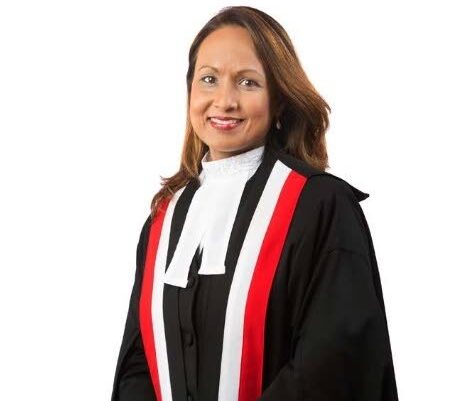Muslim prison officers allowed to wear beards

TWO Muslim prison officers will be allowed to wear their neatly groomed beards while on duty.
They will also receive compensation from the State because of an unconstitutional internal prison policy barring prison officers from keeping facial hair.
Last week, Justice Margaret Mohammed ruled in favour of officers Sherwin Ramnarine and Javed Boodram who challenged a decision by the Commissioner of Prisons to transfer them because of their beards.
In her ruling, she held the two would be permitted to wear their beards in conformity with the practice of their religion.
She also ruled their rights to freedom of conscience and religious beliefs were infringed by the denial of their requests to wear a beard while on duty. She also held that the prison service regulation which prevented them from having facial hair without a medical reason was unconstitutional, null and void.
She also ordered they be compensated for the breaches of their rights. The State was further ordered to pay the costs of the Muslim scholar who gave evidence at the trial and the officers’ legal costs.
On February 20, Mohammed also upheld a lawsuit brought by another prison officer, Arshad Singh, who was barred from being promoted because of his beard.
In their lawsuits, Ramnarine and Boodram said the policy breached their rights. The judge had also granted injunctions barring their transfer to other prison facilities.
Ramnarine joined the Prison Service in 2002, while Boodram joined in 2014. Boodram was already a Muslim when he joined the service, while Ramnarine converted after joining.
Both men claimed that they were constantly harassed by senior officers, who repeatedly advised them to shave their beards that they keep as part of their religious beliefs.
Admitting that prison officers are only exempt from the facial hair policy based on annual medicals, Boodram admitted that he got one from a dermatologist as he has a skin condition under which he develops painful cysts on his face when he is clean-shaved.
However, Boodram’s lawyers claimed that the exemption only allowed him to grow a low beard as opposed to the length prescribed in his religion.
In Singh’s case, Mohammed held that no policy or procedure of the prison service can limit an individual’s rights under the Constitution.
Before the transfer, Ramnarine was assigned to the Claxton Bay Correctional Facility. Boodram was posted at the maximum security prison in Golden Grove, Arouca.
They claimed the move against them was the "they claim it is the “infliction of a penalty under the guise of a transfer.”
In her ruling in the other case also involving a Muslim prison officer, Mohammed said there was no merit in the reasons given by the commissioner to justify the bar on the wearing of facial hair by Muslim prison officers.
“I accept that the TTPS is entitled to make policies and procedures to instil discipline, uniformity, tidiness and cleanliness of prison officers in the conduct of their duties.
“Indeed such policies and procedures are laudable.”
However, the judge said those policies could not limit or restrict any prison officer’s guaranteed right to practice and observe their religion.
In her ruling, the judge referred to other cases involving Muslim prisoners as well as police officers, in particular Sharon Roop, who was successful in her challenge over her hijab. To the former, she said while she accepted that officers and prisoners were governed by different rules, “it was absurd” that the rules allowed Muslim prisoners to wear facial hair but prohibited prison officers.
She said it was her opinion that both groups were to be treated the same as they were all entitled to the right of freedom of conscience and religious belief and observance.
“As a consequence, just as the commissioner permits male Muslim prisoners the right to wear facial hair, in like manner he also has a duty to treat the male Muslim prison officers similarly and permit them to wear facial hair during their employment.”
She said after the judgment in Roop, the prison service should have taken steps to amend the general orders taking into account the court’s guidance.
Ramnarine and Boodram were represented by Anand Ramlogan, SC, Jayanti Lutchmedial, Kent Samlal, Natasha Bisram and Sheldon Sookram. The State was represented by Coreen Findley, Janique Mitchell, Vandana Ramadhar, Nisa Simmons, Akeenie Murray and Dominique Bernard.


Comments
"Muslim prison officers allowed to wear beards"